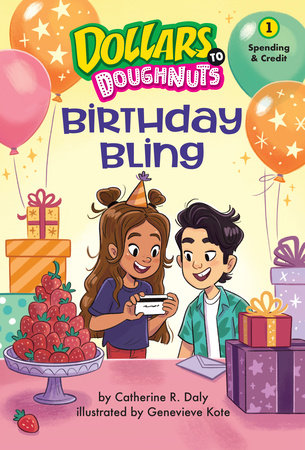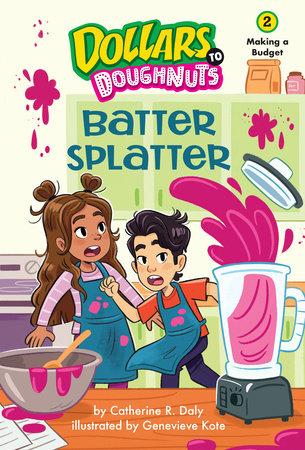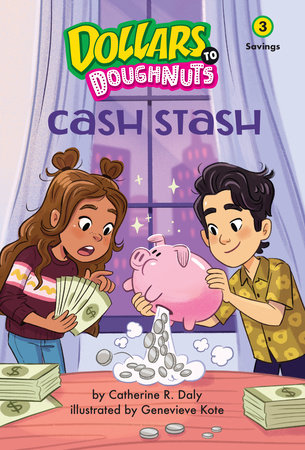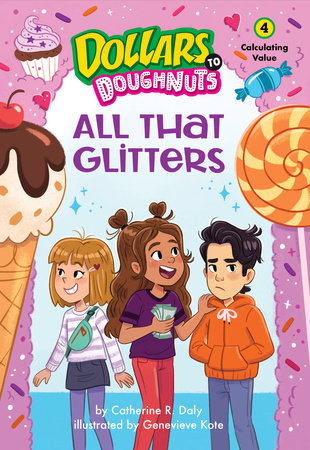Are Your Kids Financially Savvy? Discover The Dollars to Doughnuts series
National Financial Literacy Month, an economy-based observance celebrated in April, is aimed to raise awareness about teaching smart money management skills. Our books in the Dollars to Doughnuts series are on the money—they’re ideal to hand to young readers who need to get financially savvy.

Best friends Julian and Lucy are the same in some ways and different in others. Both love horror movies—and doughnuts! While Lucy likes sports, Julian likes to draw. And while Julian likes to save, Lucy likes to spend. But they both get a heaping helping of financial literacy in this early chapter book series that simply demystifies money matters. From budgeting to spending, from credit cards to gift cards, Dollars to Doughnuts tackles and explains big financial topics for kids.
When Lucy’s aunt gives her a card—the plastic kind—for her birthday, Lucy knows just the blinged-out sweatshirt to spend it on. She plunks the card down at the store, but, cringe, it comes up short! Wait, what’s the difference between a gift card and a credit card?
Topic: Spending & Credit
After a batter disaster, Julian and Lucy’s cooking class needs a kitchen cleanup, including a new paint job. Luckily, they have a plan to make things right—they’ll simply throw the bake sale of the century! But their sweet dreams dissolve like sugar when faced with the b-word: Budget. What is a budget and how are they ever supposed to stay within it?
Topic: Making a Budget
Julian has saved his pennies—and quarters and dollars—for ages. He keeps them in a safe place, at the top of the closet, behind his winter blanket in his trusty piggy bank, Wilbur. But now his mom, his dad, even his best friend, Lucy, who barely saves any money at all, says Wilbur isn’t safe enough. They want him to move his money to a bank! Will Julian keep Wilbur, or open a savings account? What’s the right thing to do?
Topic: Savings
Lately Lucy has been spending a lot of time—and money—with Avery, the rich new girl in school: ice cream after school, boba teas, the arcade. Now Avery wants to go to SugarFest, the hottest, sweetest ticket in the city. Lucy thinks it will be amazing. Her best friend, Julian, on the other hand, isn’t sure. Why can’t they do something free instead?
Topic: Calculating Value





